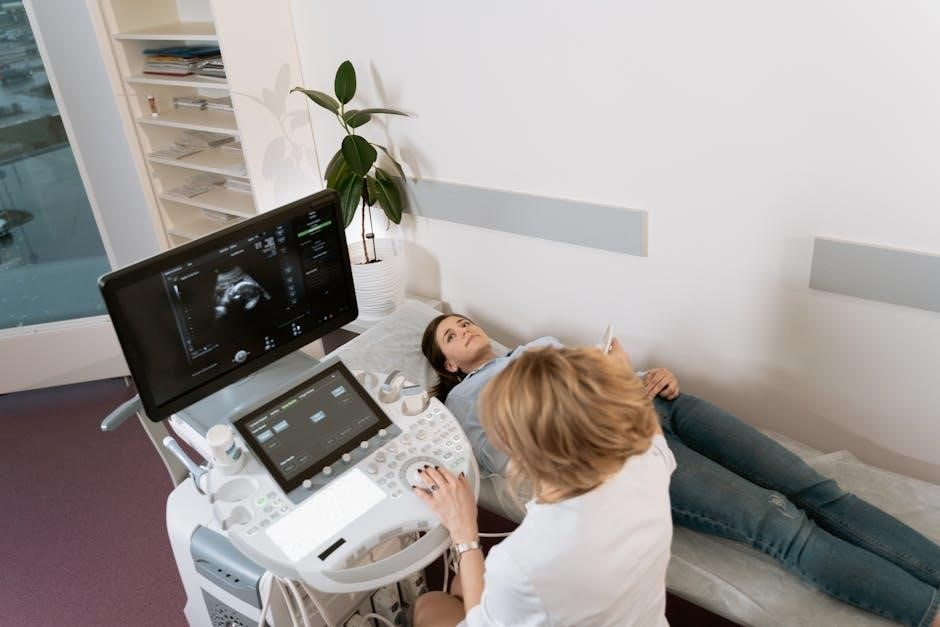Definition and Purpose
The definition of spatial reasoning tests refers to the ability to think and understand spatial relationships and objects.
The purpose of these tests is to assess an individual’s cognitive ability to visualize and manipulate objects in space.
Using online resources like spatial reasoning test with answers pdf can help improve skills and knowledge effectively.
The tests are designed to evaluate an individual’s ability to reason and problem-solve in a spatial context.
They are commonly used in educational and professional settings to assess an individual’s cognitive abilities.
The tests typically consist of a series of questions or puzzles that require the individual to use spatial reasoning to solve.
By practicing with spatial reasoning test with answers pdf, individuals can improve their spatial reasoning skills and prepare for tests and exams.
The tests are an effective way to evaluate an individual’s spatial reasoning abilities and identify areas for improvement.
Overall, the definition and purpose of spatial reasoning tests are to assess and improve an individual’s spatial reasoning skills.
The tests are a valuable tool for educators and professionals to evaluate an individual’s cognitive abilities.
They provide a comprehensive assessment of an individual’s spatial reasoning skills and knowledge.
The tests are widely used and recognized as a reliable measure of spatial reasoning abilities.
They are an essential part of many educational and professional programs.
The tests are designed to be challenging and require the individual to think critically and solve problems.
By using spatial reasoning test with answers pdf, individuals can prepare for the tests and improve their spatial reasoning skills.
The tests are an effective way to evaluate an individual’s spatial reasoning abilities and provide a comprehensive assessment of their skills and knowledge.
Importance of Spatial Reasoning
The importance of spatial reasoning lies in its ability to enhance problem-solving skills and improve cognitive abilities.
Spatial reasoning is essential in various fields, including science, technology, engineering, and mathematics (STEM).
It plays a crucial role in developing critical thinking and analytical skills.
Individuals with strong spatial reasoning skills can better understand and visualize complex concepts;
Using spatial reasoning test with answers pdf can help identify areas of improvement and develop strategies to enhance spatial reasoning skills.
The importance of spatial reasoning is also reflected in its impact on academic and professional performance.
It is a valuable skill that can benefit individuals in their personal and professional lives.
By developing strong spatial reasoning skills, individuals can improve their overall cognitive abilities and achieve greater success.
The importance of spatial reasoning cannot be overstated, and it is essential to recognize its value in various aspects of life.
It is a skill that can be developed and improved with practice and dedication;
Effective spatial reasoning skills can lead to greater academic and professional achievement.
Spatial reasoning is a fundamental skill that can benefit individuals in numerous ways.
Types of Spatial Reasoning Tests
Types of spatial reasoning tests include verbal and non-verbal tests, assessing different aspects of spatial abilities and skills effectively always online.
Verbal-Spatial Tests
Verbal-spatial tests are a type of spatial reasoning test that assesses an individual’s ability to understand and process verbal information related to spatial concepts and relationships. These tests typically involve reading and interpreting verbal descriptions of spatial scenarios, and then using that information to make judgments or solve problems. The tests are designed to evaluate an individual’s ability to think spatially and to understand how verbal information can be used to inform spatial decisions. Online resources, such as spatial reasoning test with answers pdf, can provide practice and guidance for individuals looking to improve their verbal-spatial skills. By practicing with these types of tests, individuals can develop their ability to think spatially and to apply verbal information to spatial problems, which can be useful in a variety of real-world contexts. Effective preparation is key to success in verbal-spatial tests.
Non-Verbal Spatial Tests
Non-verbal spatial tests are a type of spatial reasoning test that assesses an individual’s ability to understand and process visual information related to spatial concepts and relationships. These tests typically involve identifying patterns, shapes, and figures, and using that information to make judgments or solve problems. Online resources, such as spatial reasoning test with answers pdf, can provide practice and guidance for individuals looking to improve their non-verbal spatial skills. Non-verbal spatial tests are often used to evaluate an individual’s ability to think spatially and to understand visual information. The tests are designed to be language-independent, making them accessible to individuals who may not be proficient in a particular language. By practicing with non-verbal spatial tests, individuals can develop their ability to think spatially and to apply visual information to spatial problems, which can be useful in a variety of real-world contexts, including science and engineering.
Preparing for Spatial Reasoning Exams
Preparing for spatial reasoning exams requires practice and resources like spatial reasoning test with answers pdf to improve skills effectively always online.
Practice Questions and Resources
Utilizing online resources such as spatial reasoning test with answers pdf can greatly aid in preparation for exams, providing numerous practice questions to enhance skills and knowledge.
The availability of these resources enables individuals to assess their abilities, identify areas of improvement, and develop effective strategies for success.
Furthermore, practice questions and resources can be tailored to specific exam formats, allowing for targeted preparation and increased confidence.
The internet offers a wide range of study materials, including spatial reasoning test with answers pdf, which can be easily accessed and utilized to achieve desired outcomes.
Effective use of these resources can lead to significant improvements in spatial reasoning abilities, ultimately resulting in better exam performance and overall success.
By leveraging practice questions and resources, individuals can optimize their preparation and achieve their goals, making the most of available study materials like spatial reasoning test with answers pdf.
Strategies for Improving Spatial Reasoning
To improve spatial reasoning, individuals can employ various strategies, including visualization techniques, mental rotation, and pattern recognition.
These methods can be applied to everyday activities, such as puzzles, brain teasers, and strategy games, to enhance spatial awareness and problem-solving skills.
Additionally, utilizing resources like spatial reasoning test with answers pdf can provide valuable insights and exercises to strengthen spatial reasoning abilities.
By adopting a consistent practice routine and challenging oneself with increasingly complex spatial problems, individuals can experience significant improvements in their spatial reasoning capabilities.
Moreover, developing strong critical thinking and analytical skills can also contribute to enhanced spatial reasoning, enabling individuals to approach problems from multiple angles and perspectives.
Effective strategies for improving spatial reasoning involve a combination of deliberate practice, mental exercises, and exposure to diverse spatial challenges, ultimately leading to improved cognitive abilities and better performance in spatial reasoning tests.
Assessing Spatial Reasoning Abilities
Evaluating spatial reasoning abilities involves measuring accuracy and speed using standardized tests and assessments always online with spatial reasoning test resources effectively every time.
Measuring Accuracy and Speed
Measuring accuracy and speed in spatial reasoning tests is crucial to assess an individual’s ability to solve problems efficiently and effectively. Online resources such as spatial reasoning test with answers pdf provide a comprehensive platform to evaluate and improve spatial reasoning skills. The tests are designed to measure accuracy by evaluating the correctness of the answers and speed by assessing the time taken to complete the test. This enables individuals to identify areas of improvement and work on enhancing their spatial reasoning abilities. By practicing with sample questions and assessing their performance, individuals can develop strategies to improve their accuracy and speed, leading to better overall performance in spatial reasoning tests. Effective measurement of accuracy and speed is essential to determine an individual’s spatial reasoning abilities and to identify areas for improvement. Spatial reasoning test with answers pdf is a valuable resource for this purpose.
Gray to White Matter Ratio and Spatial Reasoning
The gray to white matter ratio is a significant indicator of spatial reasoning abilities, as it reflects the brain’s structural composition. Research suggests that a higher gray to white matter ratio is associated with improved spatial reasoning skills. This ratio can be assessed using neuroimaging techniques, providing valuable insights into the neural basis of spatial reasoning. The relationship between gray to white matter ratio and spatial reasoning is complex, and further research is needed to fully understand its implications. Online resources, such as spatial reasoning test with answers pdf, can help individuals assess and improve their spatial reasoning skills, which may be related to their gray to white matter ratio. By exploring this relationship, researchers and individuals can gain a deeper understanding of the neural mechanisms underlying spatial reasoning and develop more effective strategies for improvement. This knowledge can be applied to various fields, including education and cognitive training.



Leave a Reply
You must be logged in to post a comment.